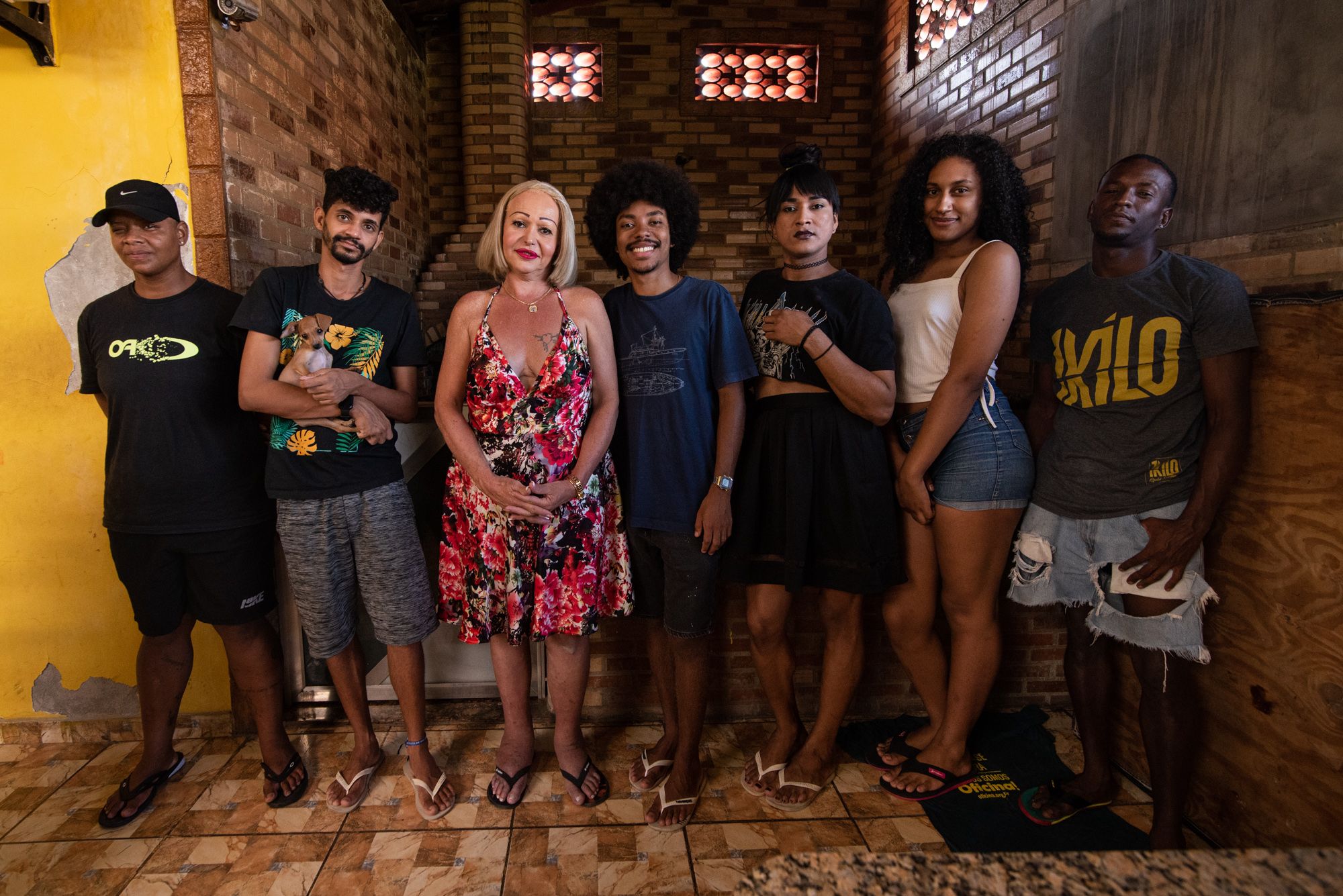

This is our latest article in a series created in partnership with the Behner Stiefel Center for Brazilian Studies at San Diego State University, to produce articles for the Digital Brazil Project on water issues and the LGBTQIAPN+ population in Rio’s favelas and in the Baixada Fluminense for RioOnWatch.
Published on LGBTQIAPN+ Pride Day 2023, this article explores the life-changing work of the first and only shelter for LGTBQIAPN+ people in Greater Rio de Janeiro’s Baixada Fluminense region. Casa Dulce Seixas (the Dulce Seixas House) in Nova Iguaçu has provided shelter and assistance to over 150 people and is supported by a network of collaborators.
“The struggle of a stereotyped body
Possessed as fetish on street corners
But dispossessed of rights.”
These lines from the poem “Pride and Mourning” by Davlyn Lotus summarize the misfortunes faced by LGBTQIAPN+ people in Brazil—a community chronically victimized by numerous forms of violence. Brazil ranks top in the world for consumption of trans pornography, while also being the country, for the 14th consecutive year, most lethal for trans people.
Structural LGBTQIAPN+phobia in Brazil is reflected in neglect by public authorities and the failure to introduce public policies which support victims of violence, socioeconomic vulnerability, or homelessness. One way to reduce the inequalities between LGBTQIAPN+ and heterocisnormative people is inclusion in the labor market.
Solidarity, Support, and Training for LGBTQIAPN+ People and Women Victims of Gender Violence
Casa Dulce Seixas is a shelter for LGBTQIAPN+ people living on the streets or in situations of socioeconomic vulnerability or domestic violence, providing them a place to stay for an indefinite period. It also supports heterocisnormative women victims of gender violence or in vulnerable situations. The shelter emerged out of the Ilê Omim Dewa Asé Odé Candomblé temple, which has been sheltering people for the last 14 years with support from Dulce Seixas Cordeiro, one of the most devoted followers of Candomblé Priestess Shirley de Maria Padilha. Cordeiro gifted the land to Padilha and later donated the house where Casa Dulce Seixas currently operates.
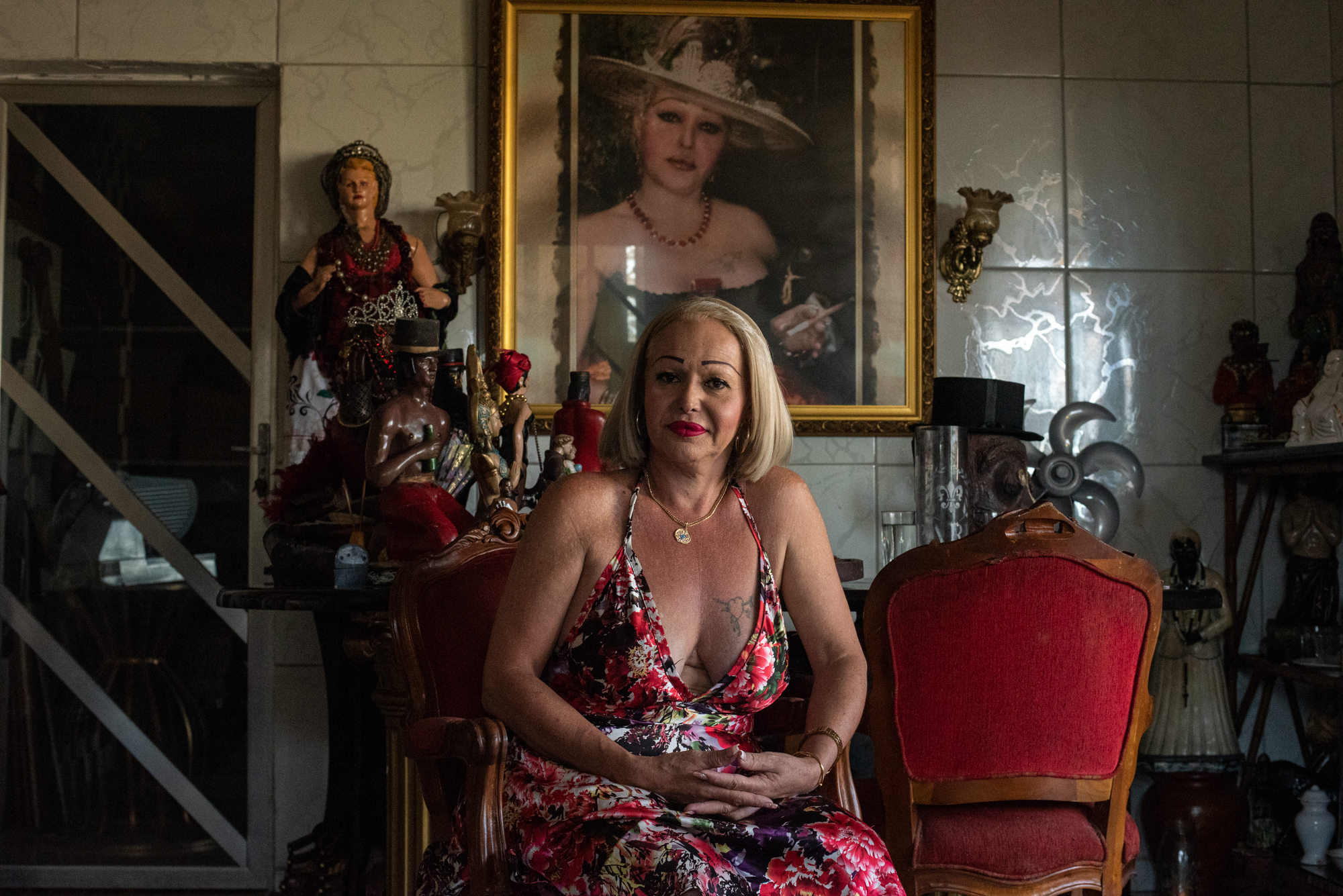
For three years now, Casa Dulce has been the first and only shelter for LGBTQIAPN+ people in the Baixada Fluminense region. Located in the municipality of Nova Iguaçu, the refuge has supported over 150 people since opening its doors. It has welcomed people from all over Brazil including the states of Amazonas, Bahia, Paraná, and Tocantins, but mainly supports people from the favelas of Rio de Janeiro, including City of God, Complexo da Maré, and Mandela, among others.
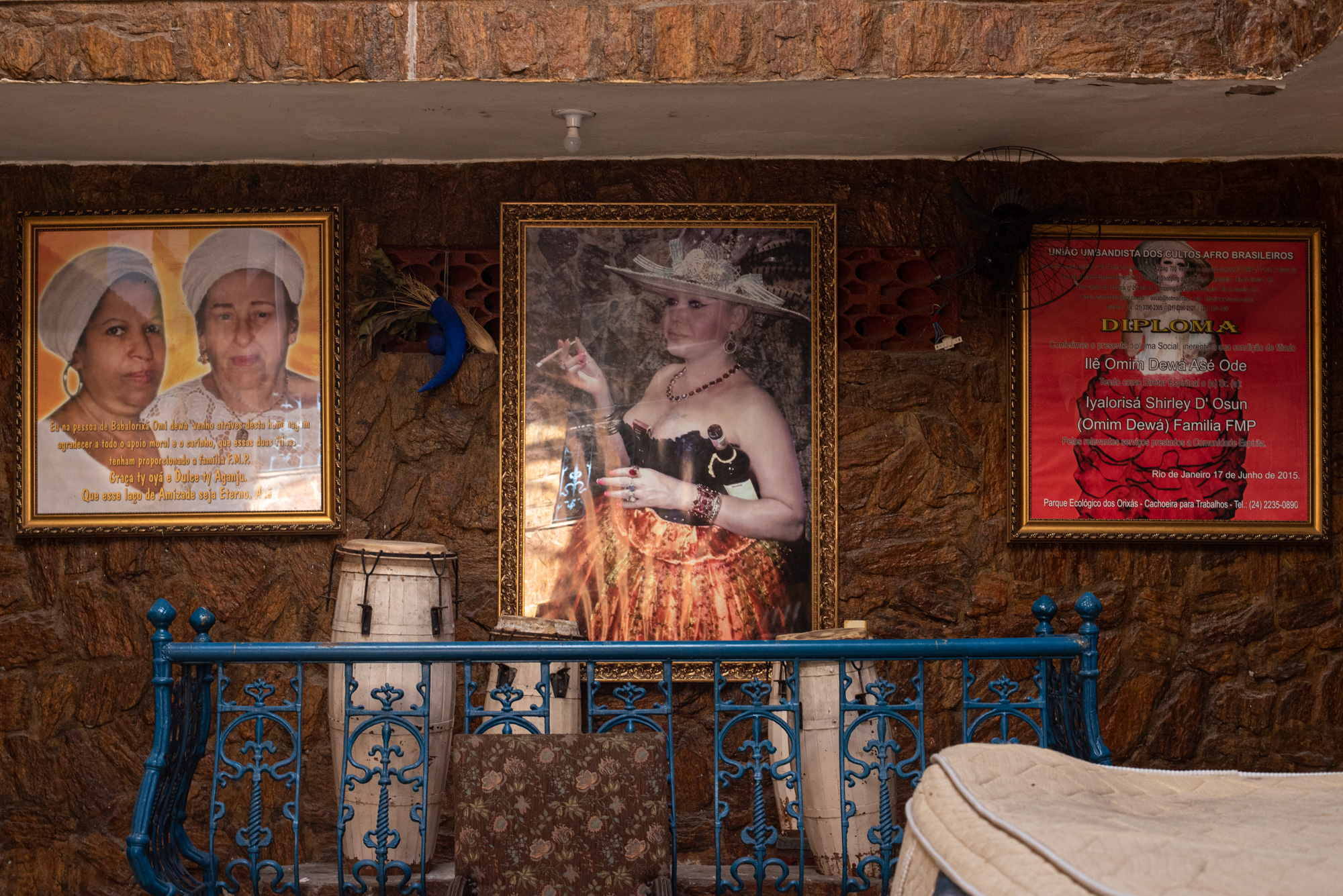
The refuge faces multiple challenges given the context of the Baixada Fluminense as a peripheral region suffering a chronic shortage of public policies and dominated by Evangelical Christianity. As such, Casa Dulce holds discussion circles in order to combat LGBTQIAPN+phobia and religious racism. In addition to these challenges, lack of financial resources makes it hard to carry out access support outside the house, such as medical care, psychological support, lack of documentation, and access to social benefits for the 30 people currently living at the house.
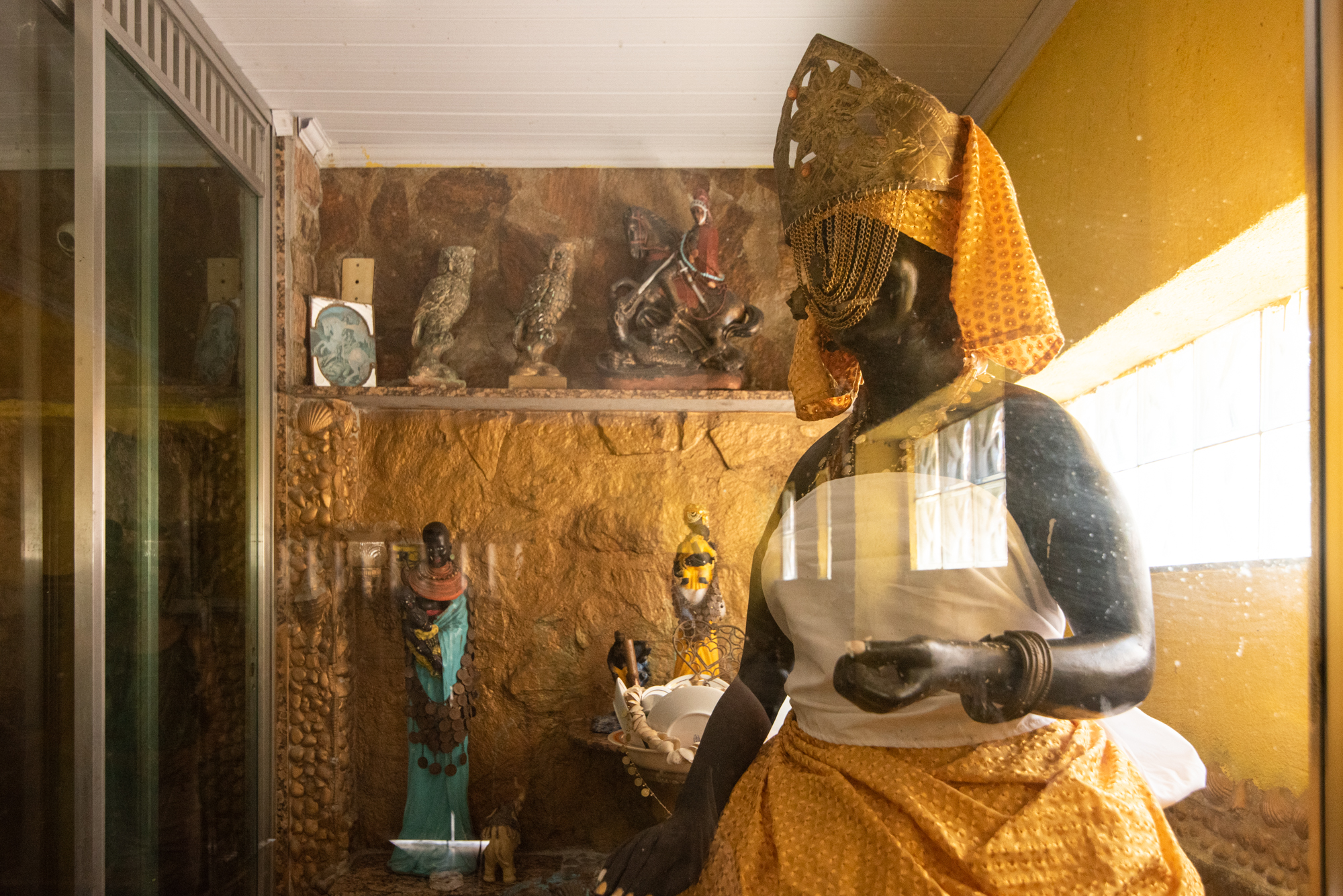
Davlyn Lotus, 29, serves as Casa Dulce’s secretary. A psychology graduate and cultural producer, she talks of how important Casa Dulce has been in her journey, and how she feels repaying some of what she received by working to take in and care for her people and against LGBTQIAPN+phobia.
“Being at Casa Dulce Seixas has great social and personal value. At university, I was always invited to think about my people and my territory, deconstructing concepts… To look around me, at what I suffered due to ignorance and intolerance. I later came to understand that I am also a tool to transform this reality… Today, getting involved in political organizing and the whole benchmark that is Dulce Seixas renews my hope every day. Reaching places I never thought of being and having the ears of people I never thought would listen shows the importance of my position and of those I represent… I am grateful for the bonds I have created since I arrived here, I am grateful for the open doors and opportunities that I’ve had and will have here. I was called on to help transform, but I [myself] am one of the great transformations realized in this house.” — Davlyn Lotus
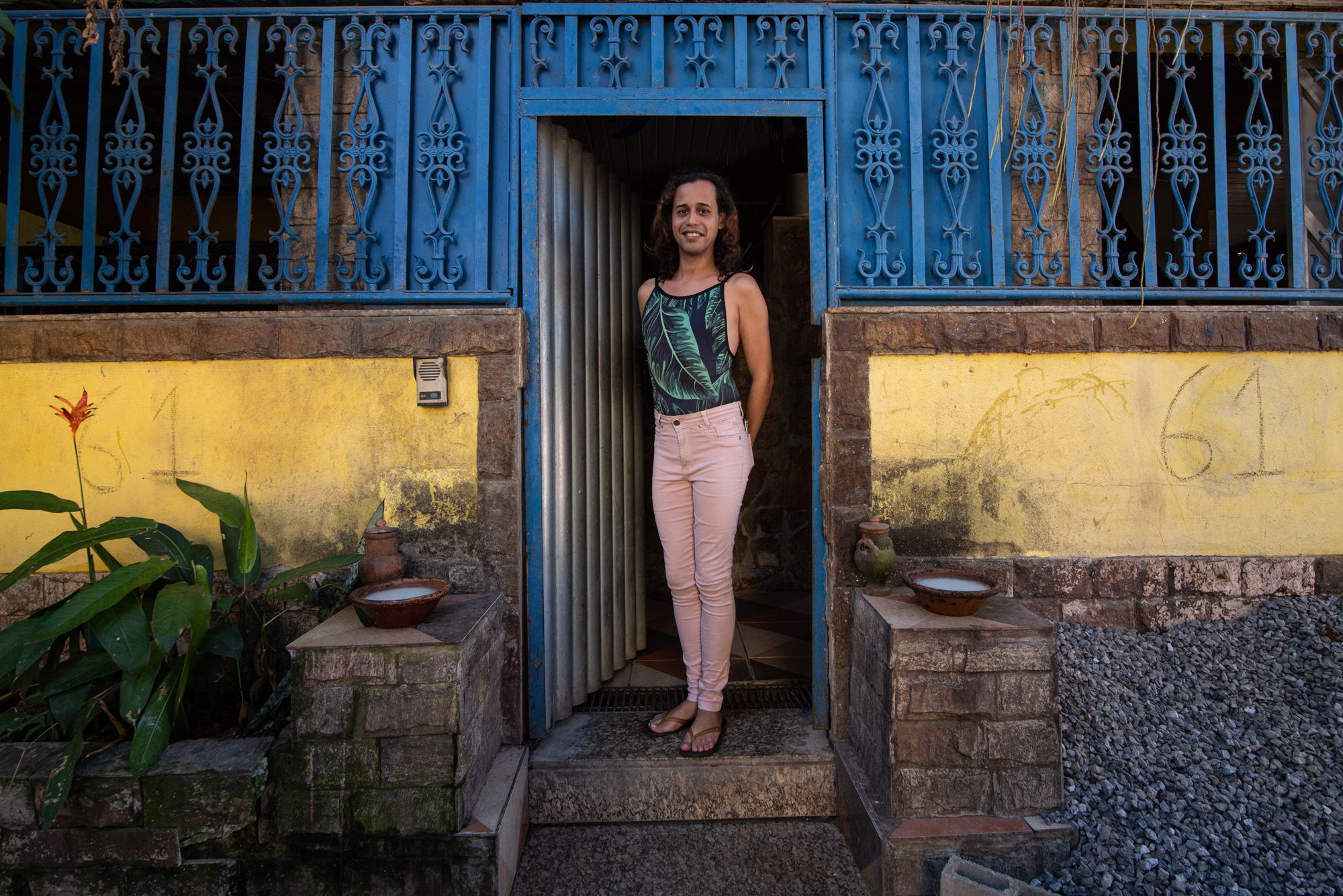
Casa Dulce puts the most basic concept of social assistance into practice through the Dulce’mente Solidária (Sweet’ly in Solidarity) initiative. Started in 2020, the program has distributed over 500 baskets of basic foodstuffs in eight editions, the most recent being January 2023. These food baskets were donated by collaborative networks that are not fixed, requiring new calls for donations every month.
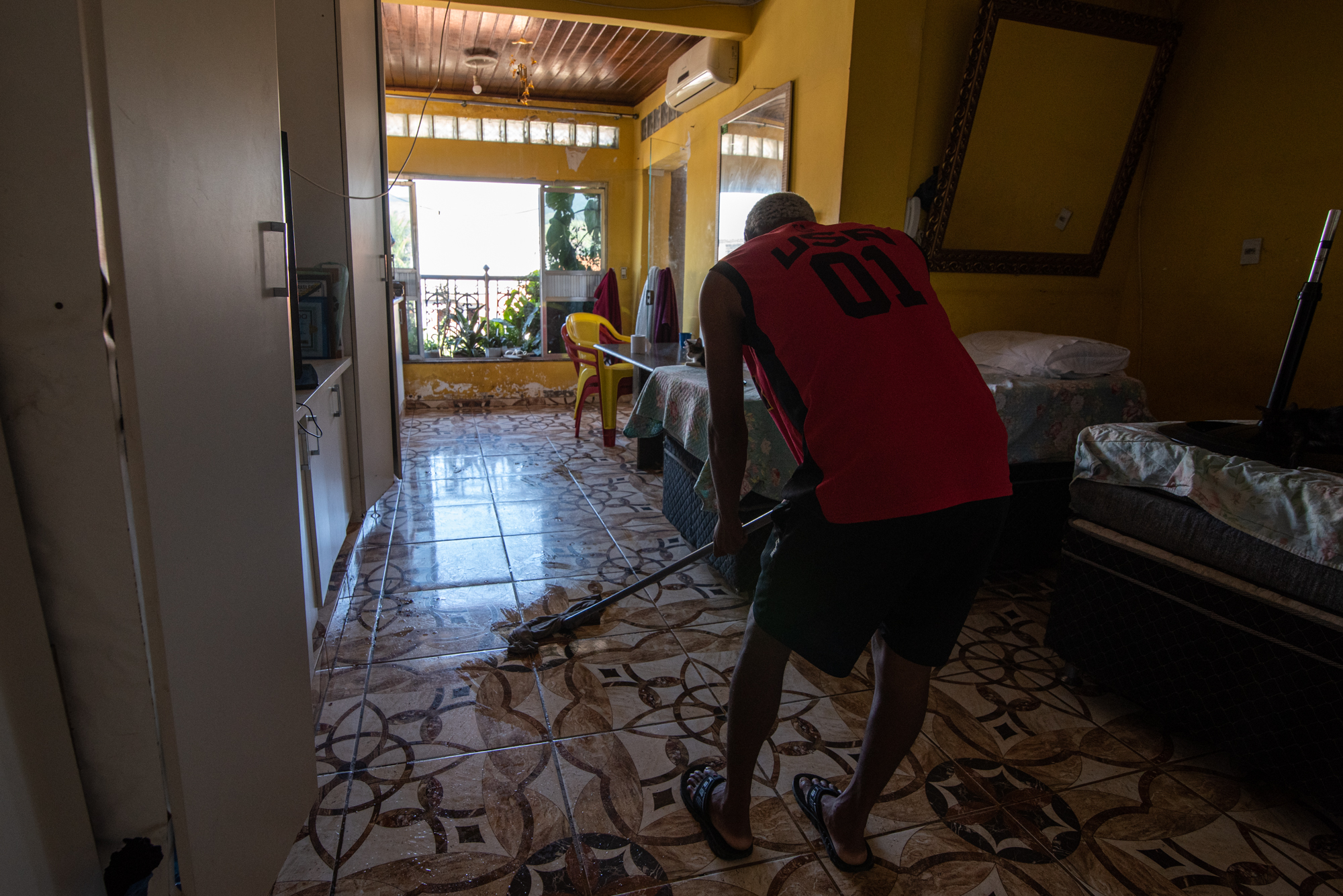
Every day, there are reports of families in need of emergency aid from Casa Dulce Seixas. The organization’s main program Dulce’mente Acolhedor (Sweet’ly Sheltering) provides a home, family, food, emotional and psychological support, and future prospects to youth, adults, and elderly people living on the streets, in socioeconomic vulnerability and food insecurity, victims of gender violence and LGBTQIAPN+phobia, and people who have suffered violence from family members who do not accept them as they are.
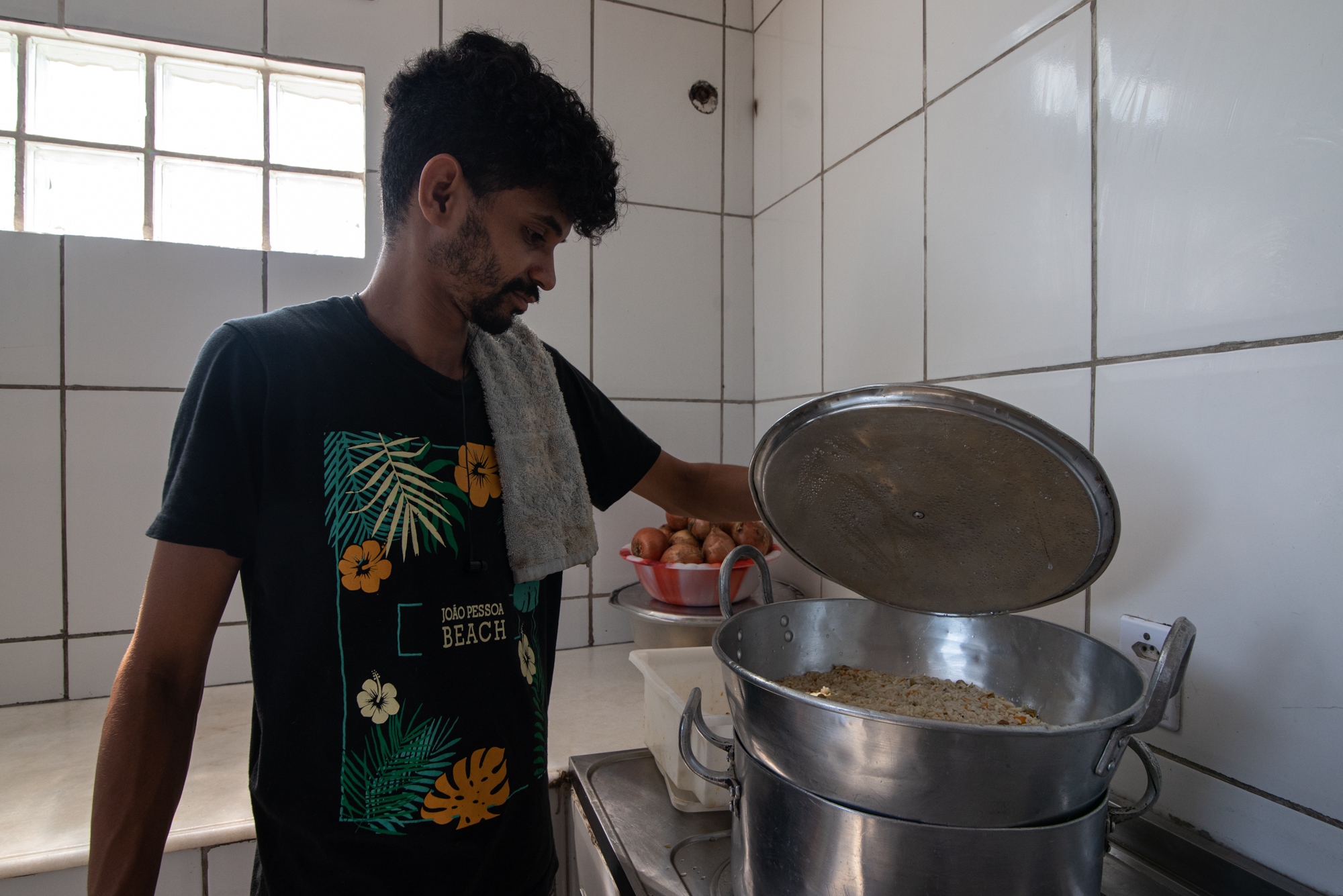
A lot of people who seek out the NGO have experienced trauma caused by physical and psychological violence and arrive with only the clothes on their backs. Casa Dulce Seixas has taken in foreigners, economic migrants, and war refugees, including Juliete Palomo, a Venezuelan citizen who immigrated to Brazil, and a refugee from the war in Ukraine who were finally able to find a home in their new country, a place where they felt supported and safe.
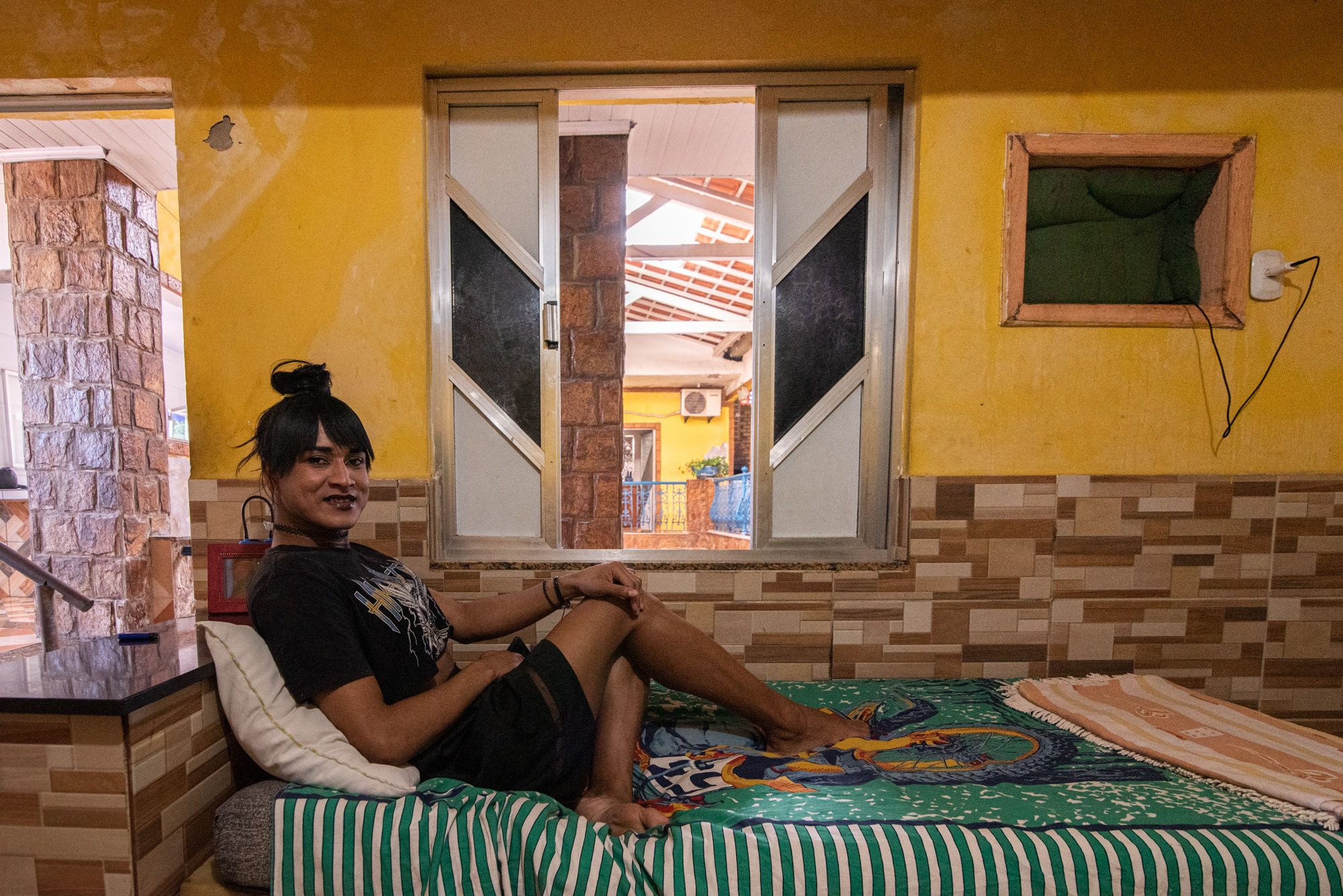
Thay Silva is a Casa Dulce Seixas resident from Praça Seca. A recent arrival at the shelter, he shares what it means for him to have a family and a home. He says he feels on the right path now that he has support from Casa Dulce Seixas and a community of people who care for each other, emanate positivity, and encourage each one of those taken in to have a better future.
“Casa Dulce welcomed me in a way that words cannot express. Honestly speaking, there is a lot of care given to people who, deep down, have adapted to having nothing. I really feel at home and at ease. I am treated well and, with all the positivity, I hope to grow in life in this place, conquering my space, getting my job, improving my quality of life, and seeing the change that I long for. I know that Dulce Seixas will guide me on the right path towards all my future victories. I can only thank the open doors of Casa Dulce Seixas, from the bottom of my heart.” — Thay Silva
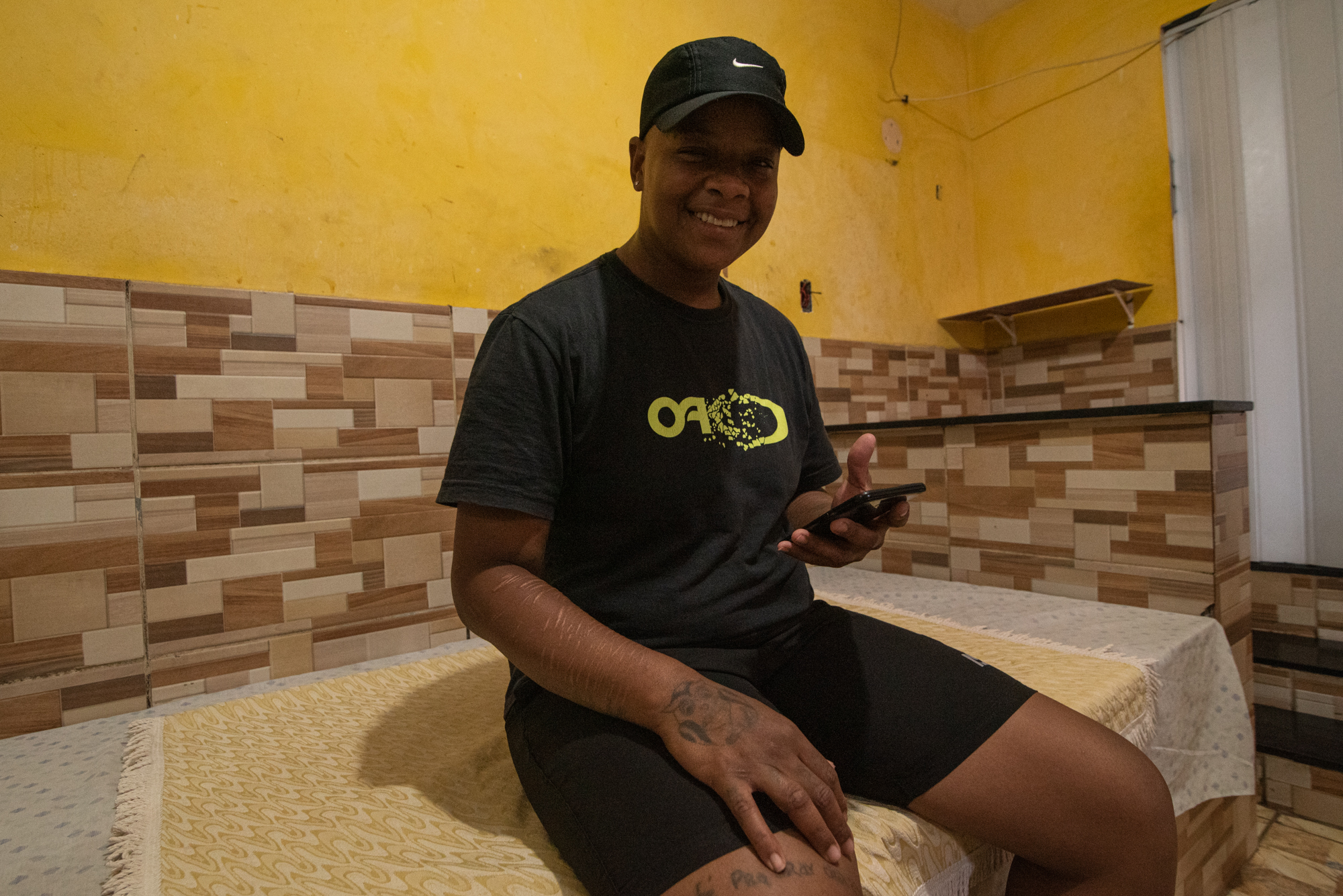
Dulce’mente Acolhedora is the initiative that requires most attention due to the medical needs of those taken in, who are taken to receive care at Fiocruz and other clinics, such as the Psychosocial Assistance Center (CAPS) and Emergency Care Units (UPAs) in cases of more serious and urgent illness. Feeding the residents of Casa Dulce Seixas requires five to ten baskets of basic foodstuffs provided by the Nova Iguaçu Municipal Social Assistance Secretariat (SEMAS) and another ten baskets donated by Fiocruz program FioTec.
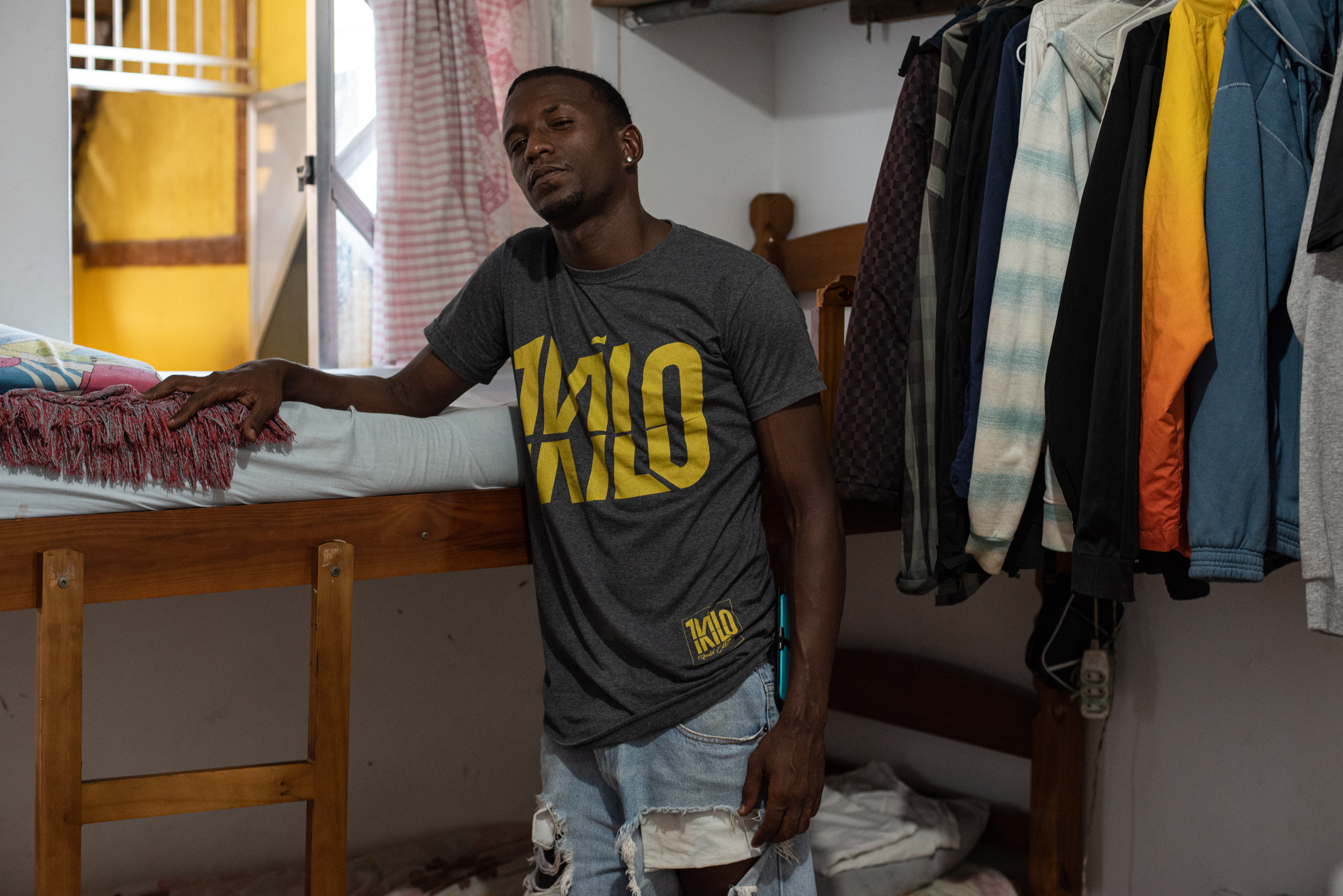
The Casa’s monthly expenses reach R$10,000 (US$2,017). They include the electric bill, which ranges from R$960 (US$194) to R$2,000 (US$403) per month, water bill, Internet bill, and groceries to supplement the nutritional offer (meats, vegetables, and fruit). In addition, the NGO pays for cleaning materials and personal hygiene products, as well as transportation expenses, medication, and the IPTU [property tax] charged by City Hall.
The organization intends to establish the Dulce’mente Capacitadora (Sweet’ly Training) program to train people for work or entrepreneurship and foster financial autonomy. A free baking course for residents and local LGBTQIAPN+ people was scheduled to be held in the first half of 2023, but had to be postponed to later in the year due to difficulties installing equipment and structural problems such as flooding, leaks, and water damage.
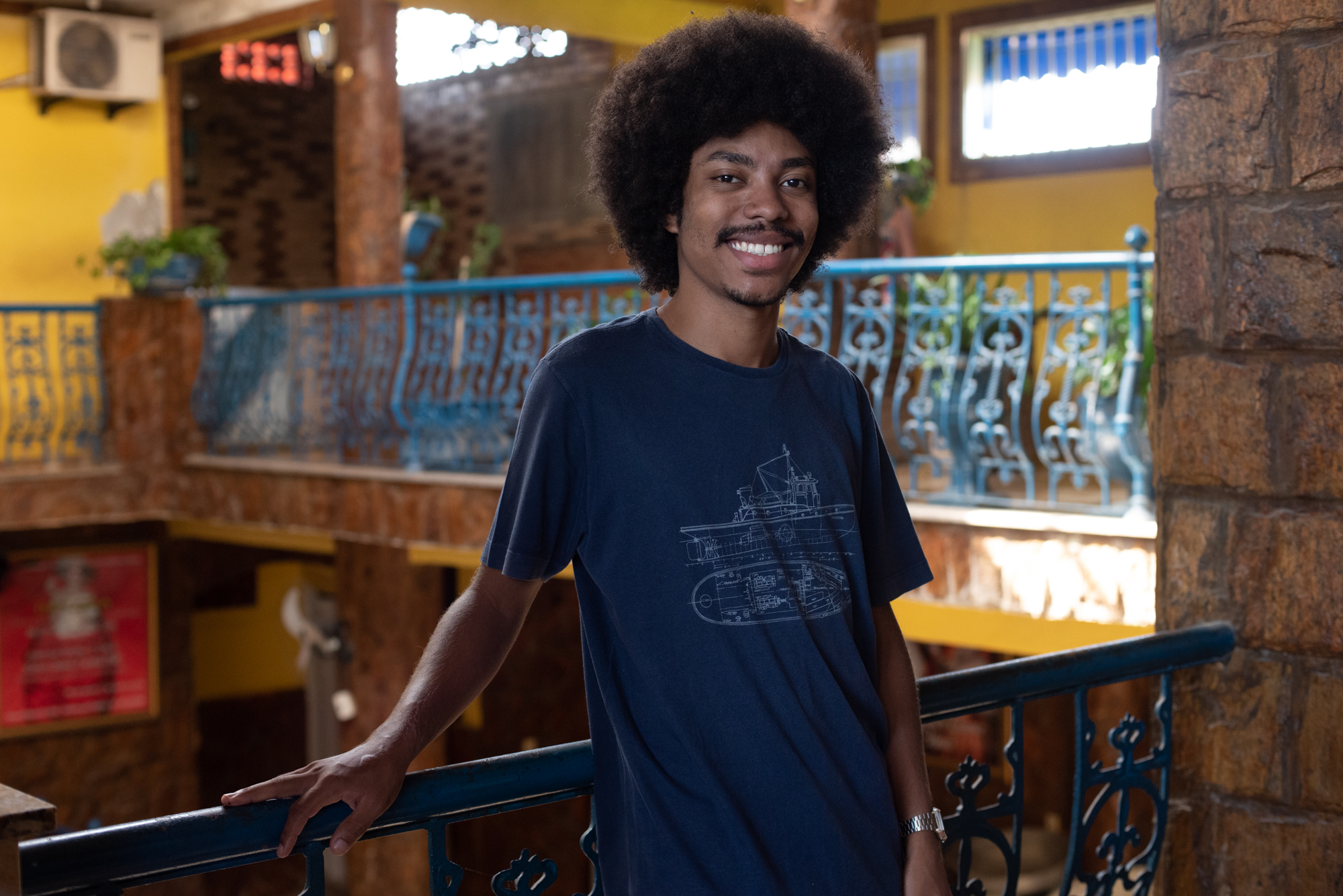
Casa Dulce Seixas also aims to implement the Dulce’mente Literária e Cultural (Sweet’ly Literary and Cultural) program, including building a community library offering free book loans, based on the understanding that literature is a human right and essential for free thought in a democratic society. The space will also serve as a meeting place for the community surrounding Casa Dulce and for social movements in the area. In addition, the program also aims to hold cultural events such as slams and poetry nights.
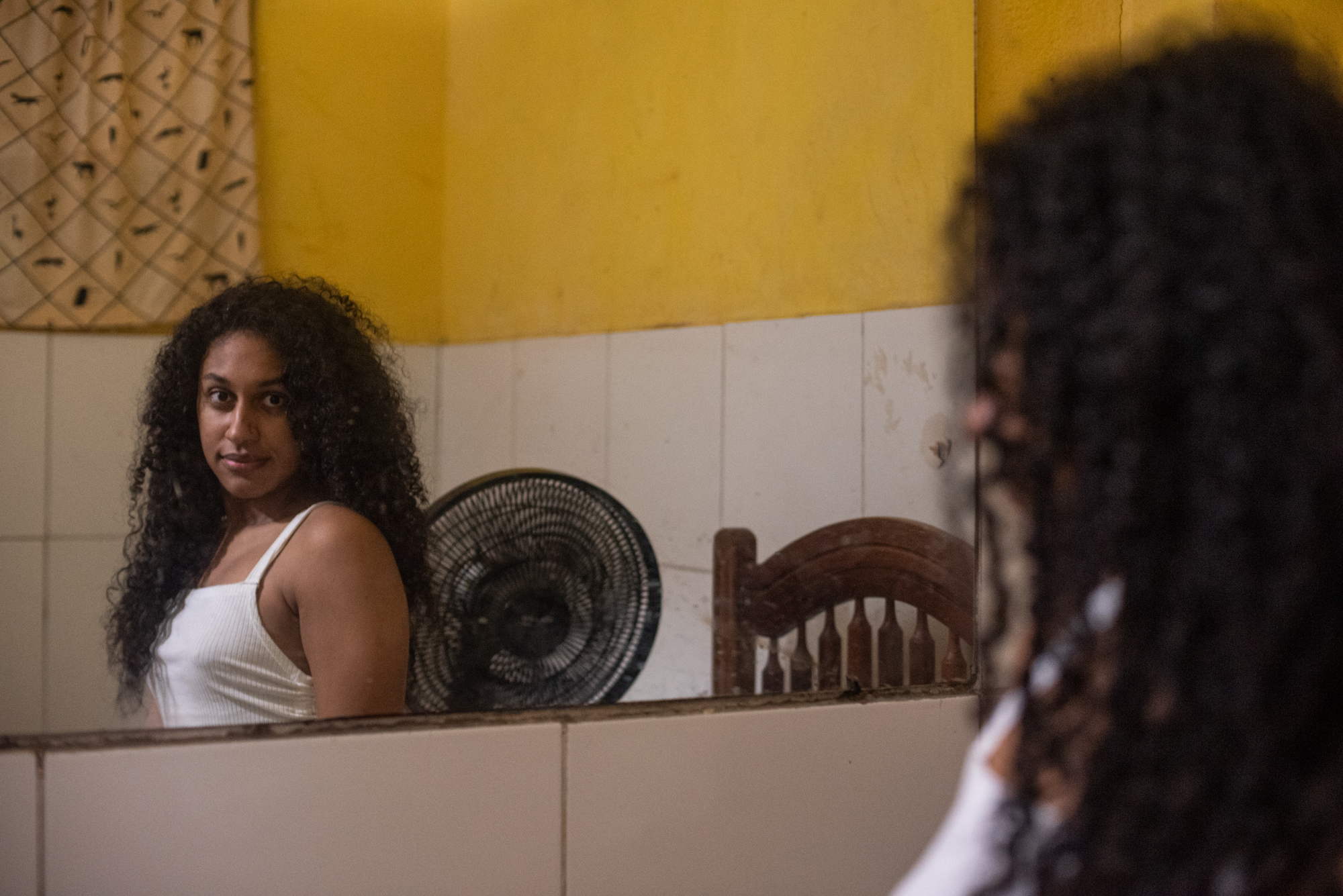
Amanda Corrêa arrived at Casa Dulce Seixas nine months ago from the Portelinha favela in the coastal city of Rio das Ostras in the Lakes Region of Rio de Janeiro state. She talks about the affection she has received at the house. For her, Casa Dulce Seixas has been the base that allowed her to heal wounds left by LGBTQIAPN+phobia and study and get a job at a multinational.
“This place provided me with shelter, in addition to other basic needs so that I could restructure myself for the world. Now I’m studying Human Resources at university. I was hired by Amazon as a young apprentice. I can support myself thanks to all the affection coming from this good place, which welcomes ‘wounded’ people and heals them to return to life’s battles.” — Amanda Corrêa
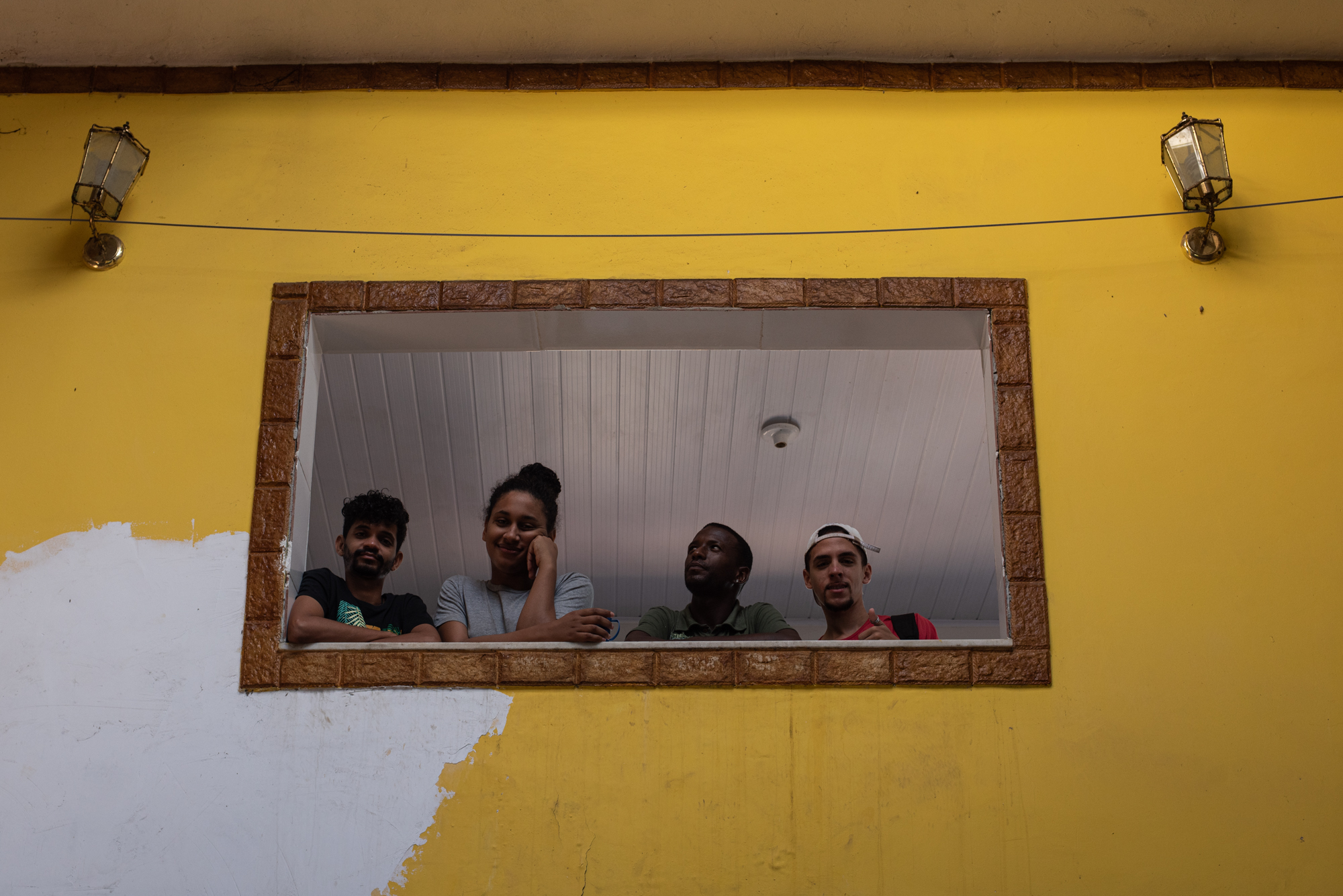
Juliana Souza Santos, known as “Ju Tempestade,” arrived at Casa Dulce Seixas ten months ago from Itabuna in the state of Bahia. She says LGBTQIAPN+phobia in her hometown made life unsustainable, so as soon as she found out about Casa Dulce, she got in touch with Candomblé Priestess Shirley de Maria Padilha and asked to be sheltered there. Now living in another state, she makes a point of highlighting the importance of Padilha and Casa Dulce in her journey. She refers to Padilha as a mother who cares, shows affection, and offers a safe haven for her children to help them develop and grow.
“I left for Rio de Janeiro as soon as I found out about Casa Dulce on the Internet. I left my city due to financial difficulties and because there was a lot of prejudice. Plus, my family didn’t accept me. I met Shirley and I am grateful for all the affection, attention, and support she and the shelter gave me. Now I’m fulfilled! Married, working, and living in Espírito Santo, it is thanks to all the work of this family that I am in this place of fulfillment. Shirley is a mother, she treats everyone like they’re her own children and does everything to help us achieve our goals. I am very grateful for knowing this place that transforms lives. I am one of those who have been transformed thanks to all the care I received from Shirley, Johari, and Davlyn.” — Juliana Souza Santos
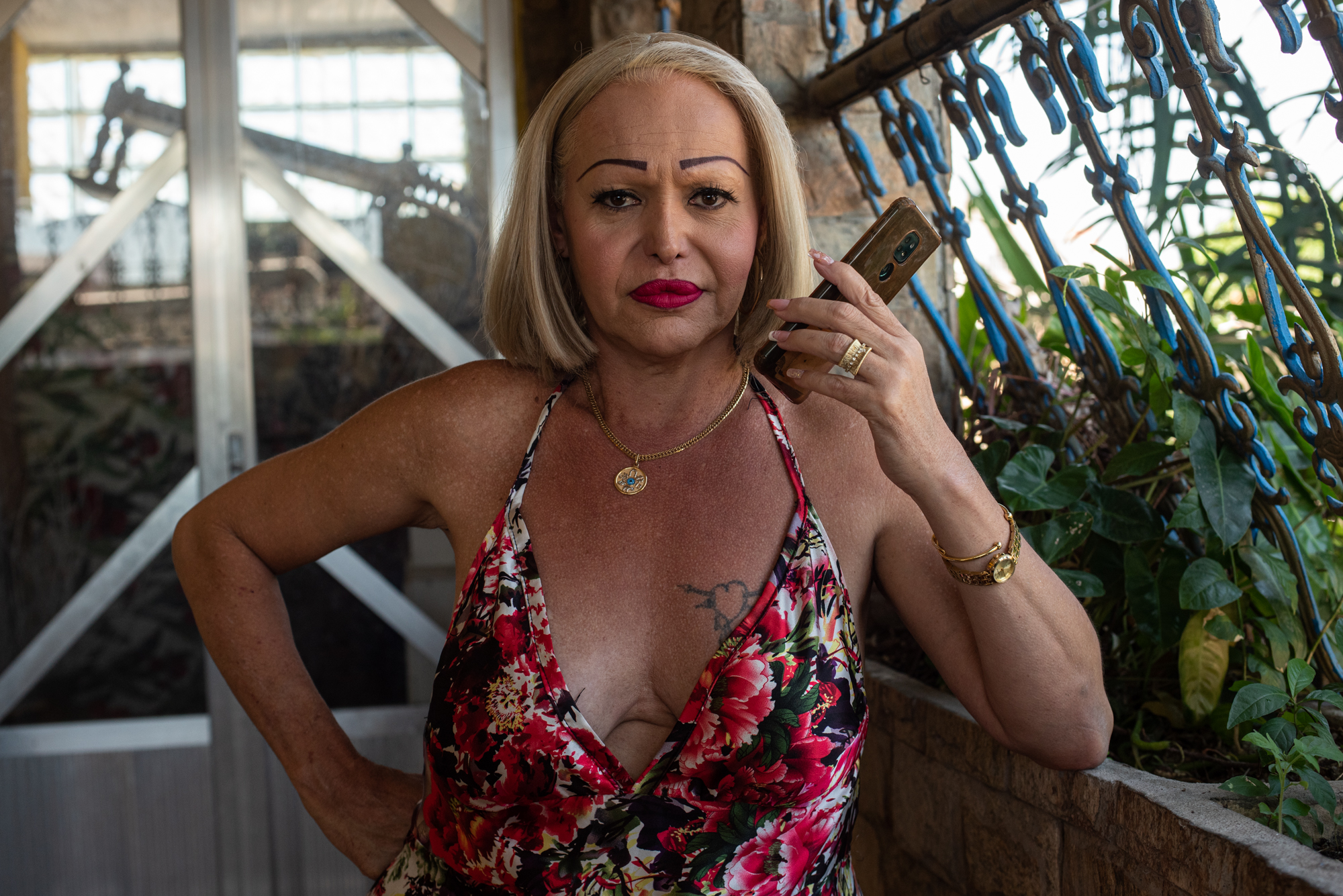
Maya Rangel dos Santos Cruz was taken in seven months ago from Coroa Grande, a neighborhood in the municipality of Itaguaí, also in the Baixada Fluminense. Padilha is also like a mother to her, someone who teaches, protects, and supports.
“I’ll tell you a little bit of my story. Before discovering Casa Dulce, I lived with my aunt and uncle. I experienced transphobia since I was a child, I was beaten and oppressed. When I turned 15, I was kicked out for affirming my sexuality. So, I went to the shelter for teenagers in downtown Rio de Janeiro where I suffered sexual abuse, my first rape, by an educator… [I] stayed [there] until I was 18 years old. When I turned 18, I went to a City Hall hostel where I also suffered a lot. I couldn’t fit in… there were drugs involved and I didn’t get involved. It was not for me to be there. In search of a new home, I found myself at an LGBTQIAPN+ house called Casa Nem. There, I learned a lot of things, but it wasn’t my place either. So, I left for Casa Dulce Seixas, where I met a friend, a protector and, first of all, a mother, called Shirley, director and founder of Casa Dulce. She supported me and helped me… I’ve been married for two years, we’re well established, I have my [own] house and I’m very happy! I am very grateful to Casa Dulce Seixas for taking me in and supporting me regardless of all my history.” — Maya Rangel dos Santos Cruz
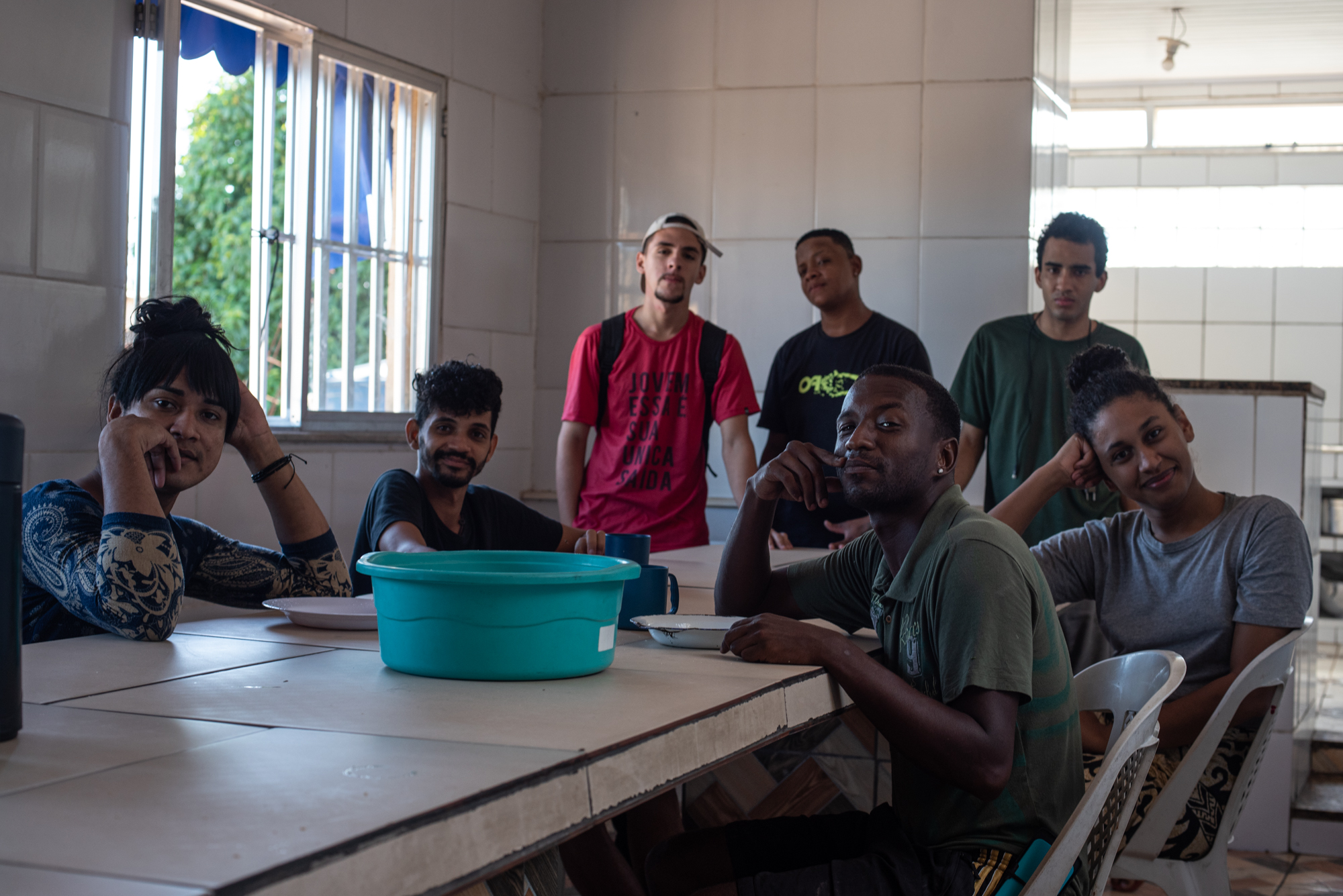
Casa Dulce recognizes and values the story of each person who passes through the shelter. Every victory is the merit of him, her, and them with a pinch of the home’s embrace and welcome. Everyone at Casa Dulce expresses gratitude for these people allowing them to be part of their lives. Each individual is taken in with great affection, finds a home, and becomes a part of the Dulce Seixas family. However, donations are needed for the work of Casa Dulce Seixas to continue. If you want and can help, contact Casa Dulce Seixas through social media.
About the author: Johari Silva is a communicator, social organizer, advocacy mobilizer for Ação da Cidadania, member-director of the Organizing Committee of the LGBTQIAPN+ Pride Parade in Nova Iguaçu and municipal councilor for the Defense of Black Rights, Health and Food Security in Nova Iguaçu.
